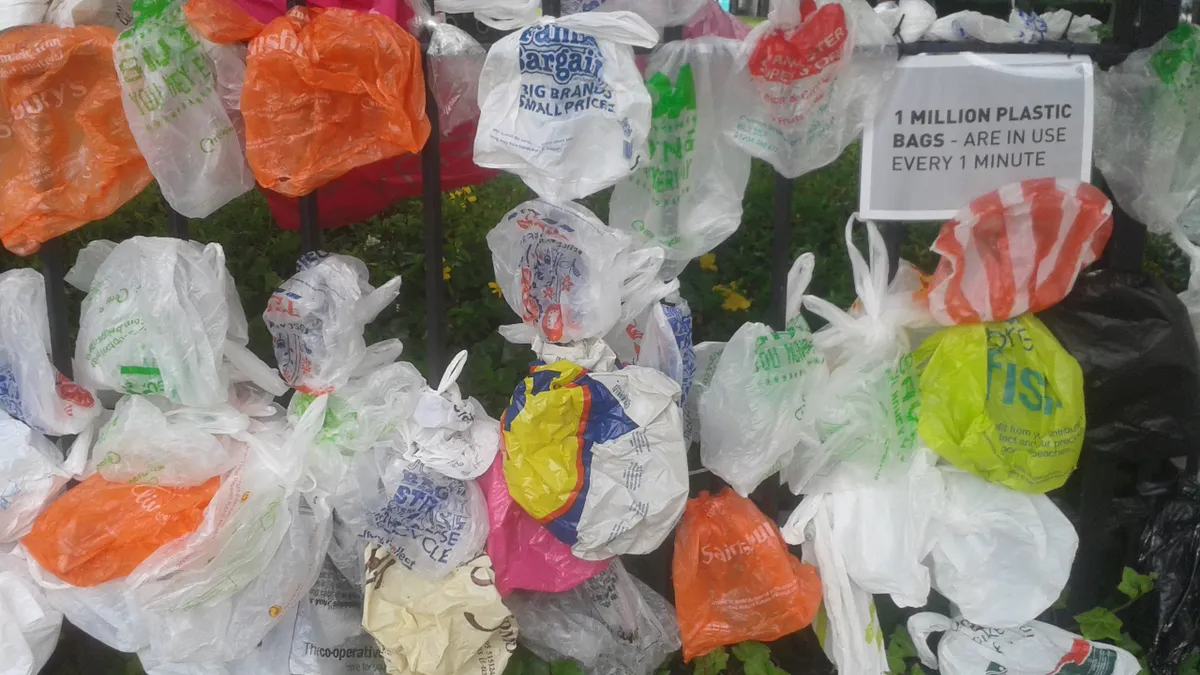UPDATE: Connecticut officials, in partnership with the American Chemistry Council's Flexible Film Recycling Group (FFRG), launched a new collection campaign this week to improve plastic film recycling rates. Residents are encouraged to recycle a range of products such as shopping bags and plastic wrap at 175 participating stores within the state.
About half of Connecticut residents don't know about drop-off options for plastic recycling and many don't know the full list of accepted materials, according to a recent survey. According to the American Chemistry Council, more than 18,000 stores now offer drop-off options for plastic film recycling nationwide.
Dive Brief:
- The Connecticut Department of Energy and Environmental Protection (DEEP) has announced a public-private partnership with the American Chemistry Council's Flexible Film Recycling Group (FFRG) to boost plastic film recycling.
- This marks the third state after Wisconsin and North Carolina to partner with the FFRG's Wrap Action Recycling Program (WRAP). The FFRG's goal is to double recycling of post-use polyethylene film by 2020.
- The goal is to increase education and opportunities for the recycling of a range of plastic bags, wraps, films, and some shipping material.
Dive Insight:
According to the FFRG, collection of plastic film has grown 79% since 2005 and 1.17 billion pounds were recovered in 2014. A study in Vancouver, WA — where WRAP conducted a campaign last year — found a 125% increase in the amount of material dropped off in stores and a 75% reduction in contamination at local material recovery facilities.
Connecticut aims to double its recycling diversion rate to 60% by 2024 and has been looking for new ways to get there as food waste diversion initiatives have lagged. Contamination in single-stream recycling has also been an issue and the state's DEEP Commissioner Robert Klee cited it as a factor in joining WRAP.
"Cleaning up our single stream recycling and making our recyclables more marketable is a very high priority," said DEEP Commissioner Robert Klee. "Plastic bags and other film packaging are recyclable and have real value — just not in our curbside bins."
Figuring out how to manage waste from polyethylene products is a growing area of interest. Though an estimated 18,000 drop-off locations are available for consumers throughout the country, much of the material is still not being captured. Some would rather ban certain categories such as plastic bags entirely, while others are researching new potential uses for it and initiatives like WRAP are trying to encourage more participation in existing programs.















